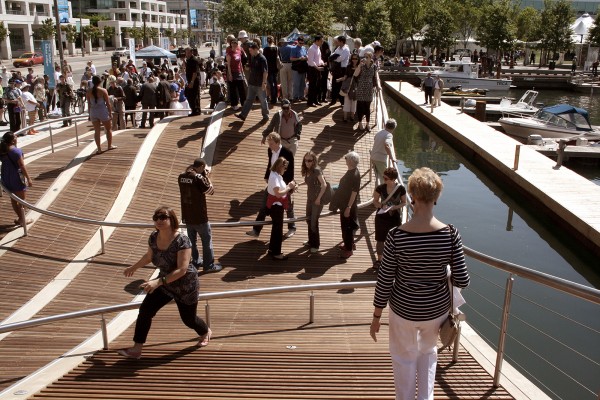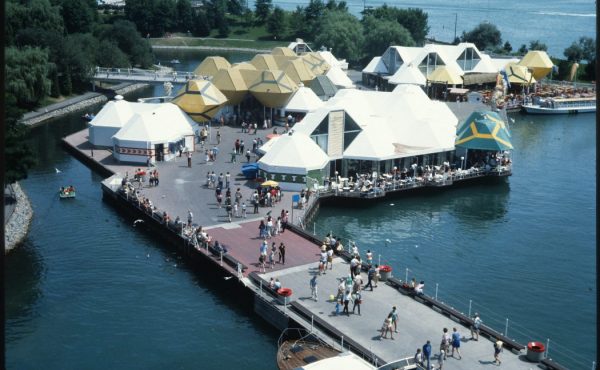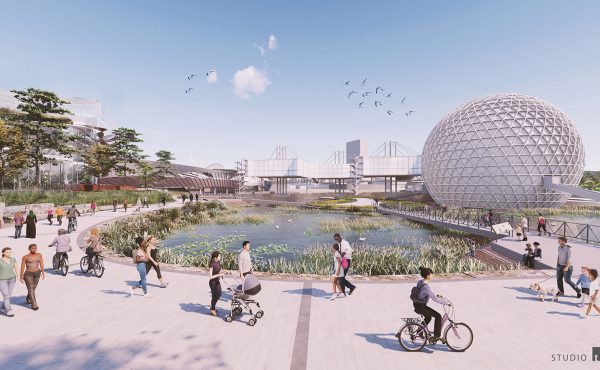Not long after amalgamation, when Toronto council still had 57 members and met at Metro Hall, I set up a lunch-time interview with Denzil Minnan-Wong at Il Fornello’s on King West. He was a newbie North Yorker who had popped, fully-formed, from the Young Progressive Conservative candidate birthing machine. We had a mutual friend, and he seemed like an upwardly mobile politician who might offer some insights into Mel Lastman’s megacity and the state of Ontario’s Tories, then in the control of Mike Harris’ cabal of common-sense revolutionaries.
Although it was a lunch interview, Minnan-Wong didn’t eat – he was on some kind of fasting diet. At one point, as I was scarfing down my pasta, scribbling notes and pumping him for background about Lastman’s fraught relationship with the province, he looked furtively to either side, leaned in close and said, sotte voce: “I’m really a red Tory.”
Oh.
In the years since, Minnan-Wong’s been many things — a part-time pol who spent more time tending to his law practice than his constituency; council’s taxi reform dude (twice); a founding member of the conservative faction that reared up in the late David Miller era; Rob Ford’s works committee boss; the Sherbourne bike lane guy; and, most recently, a self-appointed Waterfront Toronto antagonista who falsely accused the agency of wanton profligacy involving toilets, pink umbrellas, and salaries.
Along the way, he’s morphed from an apparently closeted red Tory into a kind of all-purpose dyspeptic-cum-social conservative. He occasionally makes a half-hearted bid to position himself for a mayoral run, only to see others snatch the prize. Needless to say, the exploding cigar moments (duking it out on Twitter with a Doug Ford parody account, and the hilarious washroom memes) haven’t helped.
Which brings us to Mayor John Tory’s decision last week to name Minnan-Wong to be not just his statutory deputy mayor, but also a board member of three heavy-hitting agencies: Waterfront Toronto, Invest Toronto and Build Toronto. Theories about this decision have been swirling ever since: one, that Tory is positioning Minnan-Wong as a potential successor; second, that Tory is keeping his enemies closer, as the saying goes; three, that Tory’s choice, along with his nomination of Frances Nunziata as speaker, was all about hurling a piece of bloody meat in the direction of the Ford Nation; four, that Tory is showing his true colours, as many on the left had warned during the election.
Certainly, Minnan-Wong’s appointment to the Waterfront Toronto board — a position that Rob Ford held and then boycotted – has caused much tensing of muscles, given his conspicuously hostile ad hominem attacks on the agency. The tenor of his nit-picking sounded way more like the Fords (notwithstanding Minnan-Wong’s late-in-the-game repudiation of their conduct) than anything that’s come from the federal Conservatives, represented first by the late Jim Flaherty and now by Joe Oliver.
Indeed, Flaherty was unwavering in his support for Waterfront Toronto (he was one of the architects), and Oliver, as recently as last July, heaped praise on Corktown Common and pledged that waterfront revitalization “will remain a priority” for his government.
Minnan-Wong’s arrival comes at a delicate moment: For one thing, Waterfront Toronto, which is running out of its funding allocation, has sensibly proposed that it be granted borrowing powers for the balance of its statutory term. That seems like a safe bet: the agency, noted the Toronto Star, generated over $2 of direct investment for every $1 it spent since 2001, and has triggered $9.6 billion in spin-off benefits. (Those umbrellas, by the way, show up on all sorts of tourist promotion materials and have punched way above their weight when it comes to place-making, so it’s hard to know why they got so far up Minnan-Wong’s nose.)
Minnan-Wong will, of course, be expected to, um, encourage Waterfront Toronto to spend prudently. But he’ll have to do so without making a complete spectacle of himself. After all, he’ll be sitting on a board with some heavy hitters, including Brookfield director Jack Cockwell, Liberal rainmaker Ross McGregor, and Progressive Conservative stalwart David Johnston. Given that Tory’s mayoralty will be all about backroom deals and proper behaviour, it’s hard to imagine that that crowd — which is Tory’s crowd — will have much patience for this sort of political flatulence.
But I think the real reason Minnan-Wong may emerge as a somewhat more politic presence has to do with the complex and as yet unarticulated relationship between Smart Track, the re-configuration of the Don mouth and the redevelopment of the huge Unilever property, on the east side of the river immediately to the north.
Tellingly, the state-of-the-city report that Tory delivered a few days before being sworn in made no reference to waterfront issues at all. It wasn’t an oversight. The reality is that Tory’s Smart Track tax-increment financing scheme turns, to a considerable degree, on transforming the Unilever property into what some are calling Toronto’s Canary Wharf, a game-changing mega-project that will be fitted out with its own rapid transit stop, pristine lake views, hip shopping, etc. But that kind of multi-billion-dollar office/mixed-use scheme (see Brookfield connection, above) can’t go ahead unless Waterfront Toronto finds a way of raising the $1 billion needed to re-route/naturalize the mouth of the Don as a means of providing the flood plain protection required under provincial regulation.
Chicken, meet egg.
According to city and federal sources, Oliver — who had a cone-of-silence meeting with Tory on Friday afternoon — is said to be keen to ante up Ottawa’s third of the necessary funding (election year!), and the province, in turn, is on the verge of approving the environmental assessment recommendations. The city, my sources say, has also identified development charge revenue streams for its portion.
If I had to bet, I’d say that what we should be watching for at some point in the next three to six months is a big bang public-private announcement — a major multi-stage mixed-use/office development for the Unilever site, plus public money for the Don as a means of creating those construction jobs, apprenticeships, investment opportunities, greening, etc., plus a helpful push for Smart Track. (Much depends, however, on whether Stephen Harper will end his spat with Kathleen Wynne.)
In other words, lots of political boxes getting ticked off.
So will Minnan-Wong have permission to screw with something of that magnitude, or even a more modest version? Absolutely not. In fact, his simultaneous — and not coincidental — appointments to Build Toronto and Invest Toronto mean he’s going to be up to his ears in developers and commercial brokers and foreign investor delegations coming here to kick the tires of post-Ford/open-for-business Toronto.
From where I sit, it seems Tory may have figured out how to keep his obstreperous deputy busy by requiring him minister to the needs of real estate moguls who likely don’t have the time or patience to be lectured to about toilets and pink umbrellas.






9 comments
DMW seems like a troll looking for problems with everything and a weasel who’s loyal to no one. Yet he’s crafty and astute. There was nothing wrong those Sugar Beach umbrellas, but he felt he had to win some favour with Rob Ford when he was on top and score some cheap political points. That made up scandal even dinged Rob Ford’s credibility with some of his supporters.
It’s a good idea to keep DMW busy with various committees. The second-in-command rarely get elected into the top job at any level of government.
I think you nailed DMW’s new role just right. Tory most certainly didn’t appoint him as any reward. Strictly where he could see him and puppet him. Keep him busy, not strategic. He is bright enough to work those three city agency files, but not smart enough to do any damage…
Interesting article, makes me want to delve more in-depth. I wish sources were provided.
Distilled: Taxpayers are going to pay – while politically connected consultants clean up again.
A Machiavellian interpretation to be sure, but a compelling argument. Let’s hope you are right, John!
great analysis.
@Danielle — If I revealed my sources, they’d have to kill me… 😉
Within Toronto’s establishment, there are two different views of development. One sees it going hand-in-hand with city-building, so that private development is part and parcel of improving the public realm (which in turn increases the value of development). The Waterfront Toronto board is part of this view.
The other sees development as simply a way of extracting as much cash as possible from land. This is firmly the camp DMW sits in, as he made clear with his attack on the umbrellas among other things.
The fact that DMW has basically been put in charge of representing the City in all of the development activity that the city is involved with – including not only the waterfront but also Build Toronto and attracting outside investment through Invest Toronto – suggests to me that John Tory (or perhaps in fact the people advising him) are going with the latter camp. The fact that the Planning Committee has been stuffed with newbie right-wingers led by a mediocre councillor – a committee designed to be ineffectual – also suggests this. It looks to me like they will be pulling away from the idea of using public land to build communities with developers (the Waterfront Toronto model, and also the goal of the current City Planning staff), and instead focus on extracting as much cash as possible from City real estate for the least expense (and enabling private developers to do the same with their own land).
But I hope you’re right and I’m wrong.
How this plays out will be very interesting to see.
Wheels within wheels within wheels.